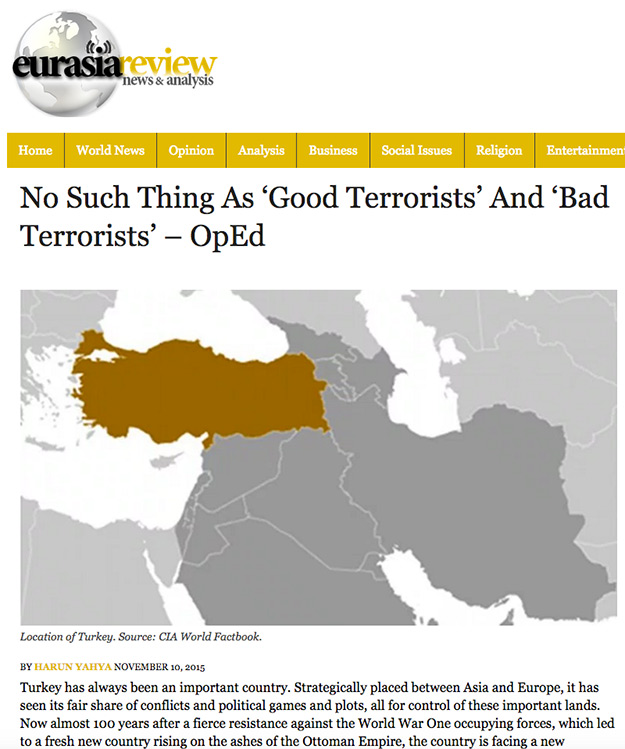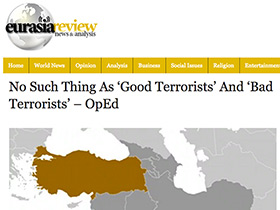
Turkey has always been an important country. Strategically placed between Asia and Europe, it has seen its fair share of conflicts and political games and plots, all for control of these important lands. Now almost 100 years after a fierce resistance against the World War One occupying forces, which led to a fresh new country rising on the ashes of the Ottoman Empire, the country is facing a new dilemma. Turkey is sought by everyone on their side, but when Turkey asks that the favor is returned, the response is cool and calculated.
Turkey’s fight against terrorism and NATO’s reaction to this problem is a good example. NATO, which was founded originally to counter the communist Soviet threat, was supposed to stand united when a member came under attack: One would also expect NATO and especially the USA to stand united with their ally Turkey against the communist terror organization PKK and its affiliates PYD and YPG. Yet, when the theory turned into practice, reactions were not at all what one would expect.
Turkey invoked Article Four of the NATO Treaty and summoned the members to a meeting so that they could discuss the terrorism the country was facing. The PKK, and its affiliates, which have killed 40,000 people in Turkey for the past 35 years in its quest for a communist state in the southeastern part of Turkey, had stepped up its attacks.
Although USA had been adamant in getting Turkey’s support in every military endeavor they have been a part of, when Turkey asked for the same for its fight against PKK, the tone severely shifted. In the words of The Economist, ‘Invoking Article Four has reminded everyone that Turkey is a NATO ally, but if Turkey wanted NATO’s imprimatur for its war against the PKK, it does not seem to have got it.’
But why? What is the reason for this attitude? For one thing, Turkey was never actually considered a full member of NATO by the USA; once again in the words of The Economist, ‘Turkey has been a member since 1952, yet America has tended to see it more as a crucial strategic asset, first against the Soviet Union and later in conflicts in the Middle East, rather than as a full-fledged partner.’ Is it because of its Muslim identity? Possibly, but it can be only one of so many other reasons.
The second and more important reason is the fact that the PKK and its affiliates are seen as ‘useful tools’ by the deep state of the USA. In line with a century-old dream of reshaping the Middle East and breaking up Turkey, certain deep state figures of the USA has always supported the PKK and its affiliate YPG. The recent incidents made it impossible to hide this illicit liaison anymore.
Yes, Turkey is perfectly capable of dealing with the PKK and its cowardly attacks on its own with its army that is the second largest in NATO. Turkey immediately took action against the PKK when they resumed their attacks and is now carrying out a wide-scale operation to root out this terrorist group. Invoking article 4 was only for consultation. Yet, it served one important purpose: the indifferent attitude it faced served as a rude awakening that showed Turkey could not always rely on USA when it came to the PKK, the PYD and the YPG, which are essentially the same terrorist organization.
If, let us say, the USA was being constantly targeted by a terrorist group that killed its citizens, officers and soldiers, blew up buildings, torched schools and kidnapped people all in an attempt to snatch parts of the USA so that it could build a communist state therein, how would the USA react?
The answer is clear to everyone and that’s why it is very wrong to have such a double standard, especially with respect to terrorist groups. There can be no such thing as a ‘good terrorist’ and ‘bad terrorists’ or a ‘terrorist that can be used’. Terrorists try to achieve their goal through violence and intimidation and that is against the core values of the modern world.
For these reasons, we call on the secret state of the USA to abandon this mentality and show its determined stance against all terrorist groups, including the PKK, the PYD and the YPG and remember the real goal of the NATO.
Adnan Oktar's piece on Eurasia Review:
http://www.eurasiareview.com/10112015-no-such-thing-as-good-terrorists-and-bad-terrorists-oped/


